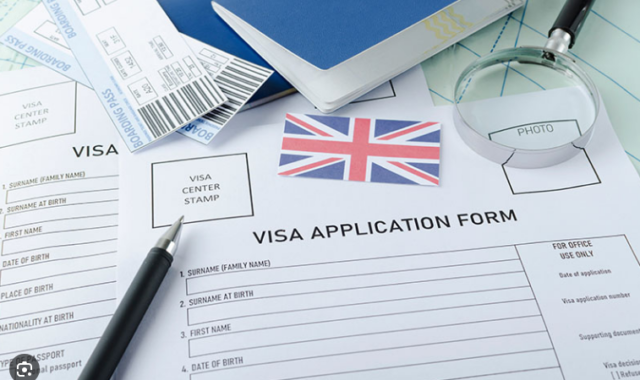The United Kingdom is a popular destination for immigrants looking to start a new life. With its diverse culture, stable economy and high standard of living, it’s no surprise that many people choose to migrate to the UK.
However, the process of migrating can be daunting and overwhelming if you don’t know where to start. In this guide, we will discuss the best routes and options for migrating to the UK.
Whether you’re planning on studying, working or settling permanently in the UK, there are various routes available that cater to different needs and circumstances. We will delve into each option in detail and provide valuable information on eligibility requirements, application processes and other important factors to consider before making your decision.
Ready to apply for your UK Visa?
Click the button below to start your simple and secure visa application process.
🇬🇧 APPLY UK ETA VISA HEREReasons for Migrating to the UK
There are many reasons why individuals and families choose to migrate to the UK. Some of the most common reasons include:
- Better job opportunities: The UK has a strong economy with a wide range of industries, providing ample employment opportunities. Plus, the minimum wage in the UK is relatively high compared to other countries.
- Quality education: The UK is renowned for its prestigious universities and educational institutions, making it a top destination for students seeking quality education.
- Higher standard of living: The UK offers a high standard of living with access to top-notch healthcare, infrastructure, and social services.
- Cultural diversity: The UK is a diverse country with people from various backgrounds and cultures. This makes it an ideal place for individuals looking for a multicultural experience.
- Safety and stability: The UK is considered a safe and stable country with low crime rates, making it an attractive option for families looking to settle down.
These are just a few of the reasons why the UK is a popular migration destination. Depending on your goals and priorities, you may have your own unique reasons for wanting to move to the country.
Routes for Migrating to the UK
There are several routes available for individuals seeking to migrate to the UK. These include:
Study
Studying abroad offers individuals a chance to gain education in a new country while experiencing its culture and lifestyle. Many countries provide student visa pathways, allowing international students to pursue degrees, diplomas, or certifications.
These visas often come with benefits such as work-study opportunities or post-graduation work permits. By studying in a foreign country, individuals can enhance their career prospects, build global networks, and access high-quality education systems.
Each country has specific requirements for student visas, including proof of enrollment, financial stability, and sometimes proficiency in the language of instruction. For many, this pathway opens doors to personal growth and long-term opportunities, including the potential for permanent residency in some cases.
Work
Work-based immigration pathways allow skilled professionals to relocate to another country for employment opportunities. Many nations offer visa programs tailored to specific industries or skilled workers in high demand. These visas often require a job offer from an employer, proof of relevant qualifications, or experience in a specialized field.
By moving for work, individuals can contribute to their host country’s economy while benefiting from new professional experiences and career growth. Some employment visas may also lead to permanent residency after a certain period. Whether short-term or long-term, work visas provide a pathway to building a future in a new country.
Family Sponsorship
Family sponsorship programs allow citizens or permanent residents of a country to bring their loved ones to live with them.
These programs aim to reunite families, offering pathways for spouses, children, parents, or other eligible relatives to immigrate. Each country has its own set of requirements, including proof of relationship, financial stability, and commitment to supporting the sponsored family member.
Family sponsorship often provides the sponsored individual with a route to permanent residency or citizenship. This pathway emphasizes the importance of keeping families together, making it a popular option for those who prioritize their loved ones.
Investment/Entrepreneurship
Investment and entrepreneurship pathways are designed for individuals who want to contribute to a country’s economy through financial investments or by starting a business.
Many nations offer visa programs for investors or entrepreneurs, requiring applicants to meet specific criteria such as a minimum investment amount, a viable business plan, or job creation.
These programs not only provide opportunities for business growth but also often lead to permanent residency or citizenship. By choosing this pathway, individuals can establish roots in a new country while contributing to its economic development.
Asylum and Refugee Protection
Asylum and refugee protection pathways are designed for individuals fleeing persecution, war, or violence in their home countries. These programs provide a safe haven for those who cannot return home due to a well-founded fear of harm.
Applicants usually need to demonstrate their need for protection through thorough documentation or evidence. Host countries offer various support systems, including housing, education, and employment assistance, to help refugees rebuild their lives.
Asylum or refugee status often leads to permanent residency and the chance for individuals and families to live in safety and dignity.
Important Factors to Consider Before Migrating to the UK
Before making the decision to migrate to the UK, there are several important factors that individuals should consider, including:
- Visa requirements: Each route for migration has its own set of visa requirements, which can be complex and time-consuming. It is crucial to research and understand these requirements before starting the application process.
- Cost of living: While the UK offers a high standard of living, it also comes with a high cost of living. It is essential to carefully consider your budget and potential job opportunities before deciding on moving.
- Culture shock: Moving to a new country means adapting to a new culture, customs, and way of life. It is important to prepare for potential culture shock and be open-minded when adjusting to a new environment.
- Job opportunities: The UK has a strong and diverse job market, but it may still be challenging to find employment in certain industries or locations. Researching the job market and potential career prospects before migrating can help individuals make an informed decision.
Some Other:
- Housing options: Finding suitable housing in the UK can be competitive and expensive, especially in major cities. It is essential to research the housing market and have a plan in place before arriving.
- Weather: The UK has a temperate climate with cool summers and mild winters. However, weather patterns can vary significantly depending on the location, and it is important to research and prepare for potential weather conditions.
- Social support: Moving to a new country can be daunting, so having a strong social support system is crucial. It is helpful to connect with other expats or join local community groups to build relationships and feel more at home in the UK.
By considering these factors and thoroughly researching the different immigration pathways available, individuals can make an informed decision about migrating to the UK.
How to Choose the Right Immigration Pathway
With various immigration pathways available, it can be overwhelming and confusing for individuals to determine which is the right one for them. Here are some tips to help you choose the best immigration pathway:
- Consider your goals: Before evaluating different immigration options, think about your long-term goals and what you hope to achieve by moving to a new country. This will help narrow down your choices.
- Research visa requirements: Take the time to thoroughly research the visa requirements for each immigration pathway that interests you. This will give you an idea of whether you meet the criteria or if there are any additional steps or qualifications needed.
- Evaluate potential job opportunities: If your goal is to work in the UK, research the job market and potential career opportunities in the industry you are interested in. This will help you determine which immigration pathway may lead to better employment prospects.
- Consider cost of living: As mentioned earlier, the cost of living in the UK can be high, so it is essential to evaluate your budget and potential expenses before making a decision on which pathway to choose.
- Seek professional advice: Immigration laws and requirements can be complex, so it is always beneficial to seek professional advice from an immigration lawyer or consultant. They can provide you with personalized guidance and help you navigate through the application process more smoothly.
By considering these factors and seeking professional advice, individuals can make an informed decision and choose the immigration pathway that best suits their needs and goals. Remember to also keep in mind the importance of staying informed about any changes or updates in immigration policies and laws.
Does Immigration Make a Positive Impact on the UK?
Immigration has significantly contributed to the UK’s socio-economic growth, enhancing its workforce, cultural diversity, and global standing. Migrants fill essential roles in healthcare, education, and technology, addressing labor shortages and boosting productivity.
The cultural enrichment brought by immigration fosters innovation, creativity, and community cohesion, making the UK a vibrant and multifaceted society. Furthermore, migrants contribute to the economy through taxes and consumer spending, strengthening public services and infrastructure.
Despite challenges such as integration and pressure on resources, the long-term benefits of immigration are evident in the UK’s prosperity and evolving cultural landscape. Recognizing and addressing these challenges responsibly can maximize the positive impact of immigration, ensuring it continues to benefit the nation as a whole.
Can Refugees and Asylum Seekers Migrate to the UK?
In recent years, the UK has provided a safe haven for refugees and asylum seekers fleeing war, persecution, or human rights abuses in their home countries. While the process of seeking asylum in the UK can be complex and lengthy, it is possible for individuals to obtain refugee status and eventually permanent residency.
The UN Refugee Agency (UNHCR) works with the UK government to provide support and assistance to refugees through various programs such as resettlement schemes and integration services. Additionally, organizations such as charities and non-governmental organizations offer vital support to help refugees rebuild their lives in the UK.
It is important to note that there are strict eligibility criteria and procedures for seeking asylum in the UK, and individuals must provide sufficient evidence to support their claims. Seeking the help of an immigration lawyer or consultant can greatly improve the chances of a successful asylum application.
FAQs
What’s the difference between a migrant and an immigrant?
A migrant is someone who moves from one place to another, whether it is within a country or across borders. On the other hand, an immigrant specifically refers to someone who moves permanently to a new country with the intention of settling there.
Can I work in the UK as an international student?
Yes, international students can work part-time (up to 20 hours per week) during term time and full-time during holidays while studying in the UK. After completing their studies, they may also be eligible for a post-study work visa or switch to another immigration category if they have a job offer or meet certain criteria.
Is it possible to apply for a UK visa without a job offer?
Yes, there are various immigration pathways that do not require a job offer, such as the Global Talent visa or the Start-up visa. Individuals can also apply for a Skilled Worker visa if they meet the eligibility criteria and have a job offer from an approved sponsor in the UK.
How long does it take to become a British citizen through naturalization?
The length of time it takes to become a British citizen through naturalization varies, but usually takes at least six years. This includes a minimum of five years of continuous residence in the UK and one year with Indefinite Leave to Remain (ILR). Other requirements include passing the Life in the UK test and meeting the English language proficiency requirement.
Conclusion
The UK offers a variety of immigration options for individuals looking to study, work, or settle in the country.
By carefully considering their long-term goals and seeking professional advice, individuals can determine the best pathway for their unique situation. Immigration has also had a positive impact on the UK, enriching its society and economy.
Refugees and asylum seekers can also find refuge in the UK through various programs and support systems. However, it is important to note that strict eligibility criteria must be met for any immigration application.
Staying informed about changes in immigration policies and seeking professional guidance are key to a successful immigration journey in the UK. So, immigrants should keep themselves updated with accurate information concerning visa requirements before making any decisions.
Looking to migrate to the UK? VisaETA UK guides you through the best options!
Discover the best immigration routes, from work and student visas to family and residency permits. Get expert advice for a smooth and successful move.
Start your journey today at visaeta.uk!







